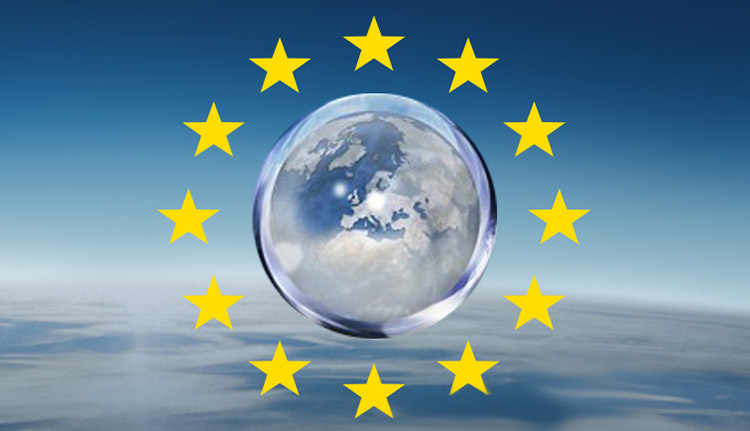Horizon 2020 – Austria has already secured over EUR 1.5 billion in European research funding
Federal Ministers Fassmann, Gewessler, Schramböck and Köstinger, and Federal Economic Chamber (WKÖ) President Mahrer: Austrian researchers and businesses ranking amongst the top 3 nations in Europe – FFG provides comprehensive range of services
“We are overshooting the target – in the best sense of the word. The ambitious aim for researchers and businesses of attracting EUR 1.5 billion in funding from Horizon 2020, the EU’s research framework programme, has already been reached,” according to Ministers Heinz Fassmann, Leonore Gewessler, Margarete Schramböck and Elisabeth Köstinger, together with WKÖ President Harald Mahrer. The Federal Ministries and Austrian Federal Economic Chamber are providing targeted support to universities, research establishments and businesses, and financing the comprehensive range of information and services provided by the Austrian Research Promotion Agency (FFG), which acts as the National Contact Point. “This positive interim result is both a mandate and the motivation to make good use of the final rounds of calls, and ensure we are well prepared for the future EU research framework programme, Horizon Europe.”

With Horizon 2020 (2014-2020), the EU initiated the world’s largest transnational programme for research and innovation. Researchers at Austrian universities, research establishments and businesses in particular have used it to support their research projects, the results of which benefit many of us in the form of medical or technical advances, for example. With a success rate (by participation) of 18.2%, Austria comes in second in the country rankings and is clearly above the European average (15.8%). The large players are businesses (approx. 37%) and universities (approx. 29%), which account for a large portion of Austria's 3,656 participations. Broken down into programmes, Austrian researchers and business are particularly successful in ERC (European Research Council; EUR 315 million), ICT (Information and Communication Technologies; EUR 213 million), Transport (EUR 156 million) and Energy (EUR 125 million).
“Austria’s researchers are excellent. This is demonstrated by the country’s excellent performance in securing ERC grants, recognised as the gold standard for research in Europe,” stressed Heinz Fassmann, Minister of Education, Science and Research. Austria has managed to contribute significantly to developing the EU’s follow-up research framework programme, Horizon Europe, which, according to the EU Commission’s latest proposals, will enjoy an equivalent level of funding. “We have adopted a stronger mission-oriented approach because we want our citizens to become even more aware of its impact,” said Fassmann.
“The goal of making Europe the first climate-neutral continent can only be achieved through research and innovation as set out in the European Commission’s Green Deal,” said Leonore Gewessler, Minister for Climate Action. “The ‘green’ recovery towards Horizon Europe is essential in order to actively support research into climate and environmental challenges, and to strengthen investment in new and environmentally-friendly technologies. This depends upon European cooperation,” the Minister said.
“Austrian businesses are European champions in Horizon 2020, recording the highest success rate,” said Margarete Schramböck, Minister for Digital and Economic Affairs. “The success of our companies makes a real contribution to strengthening Austria as a business location, and gives us a shared incentive to succeed equally well on the planned new European Innovation Council, so that disruptive ideas can be turned into innovations and reach the market in greater numbers.” The Minister also highlighted the planned ‘Digital Europe’ programme, noting that it “allows us to use digitalisation to generate economic recovery at both a national and European level.”
“Agriculture and forestry, the regions and tourism also rely on support from research and development to master their current and future challenges,” stressed Minister Elisabeth Köstinger. This requires effective coordination between RTI and sectoral policies. “The same applies to the Green Deal which places great value on the EU’s Farm to Fork Strategy for safe and sustainable food production.” This cooperation is also needed in order to make good use of the planned Horizon Europe missions which underscore the added value of research in key areas such as soil health and nutrition.
“The innovative spirit of our businesses is clearly demonstrated by the European figures. It is our small and medium-sized businesses, above all, which use innovation and research as major levers,” said WKÖ President, Harald Mahrer. “In the face of global competition, creating marketable products and entering new markets is critical, and this is being effectively supported through EU research funding.” The European Innovation Council is designed to boost innovation further, enabling research findings to be translated into concrete innovations, further reinforcing progress, growth and employment.
Austria’s researchers and businesses receive targeted support from the FFG which allows them to compete at European level. “We are, and remain, a strong partner to Austria’s research community in Europe, developing the range of information and services we offer on a continual basis,” stated FFG Managing Directors, Henrietta Egerth and Klaus Pseiner.
